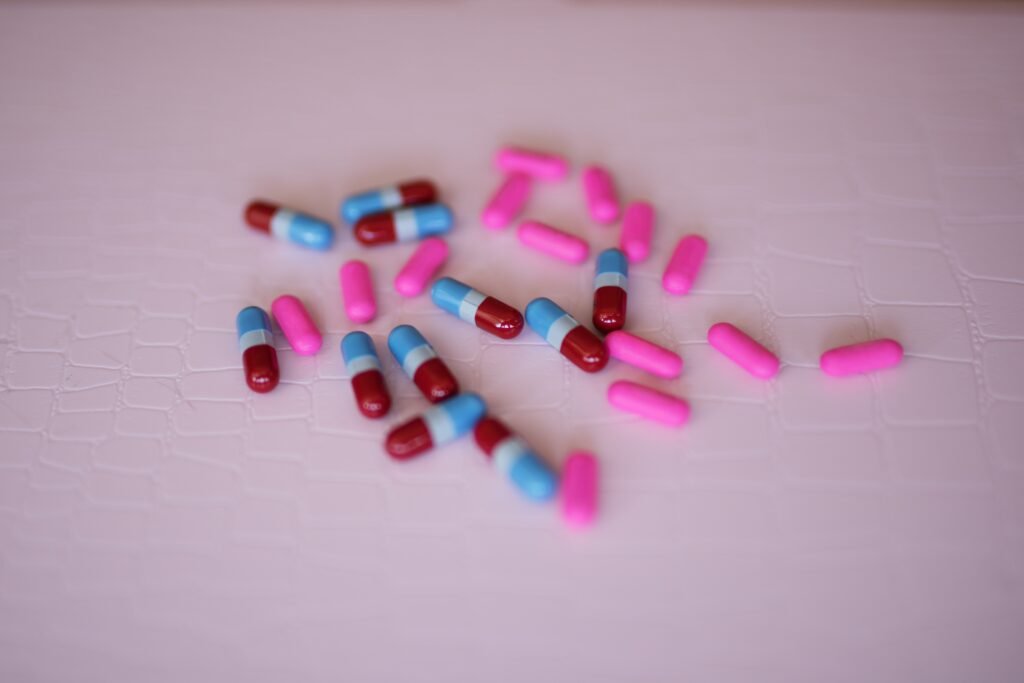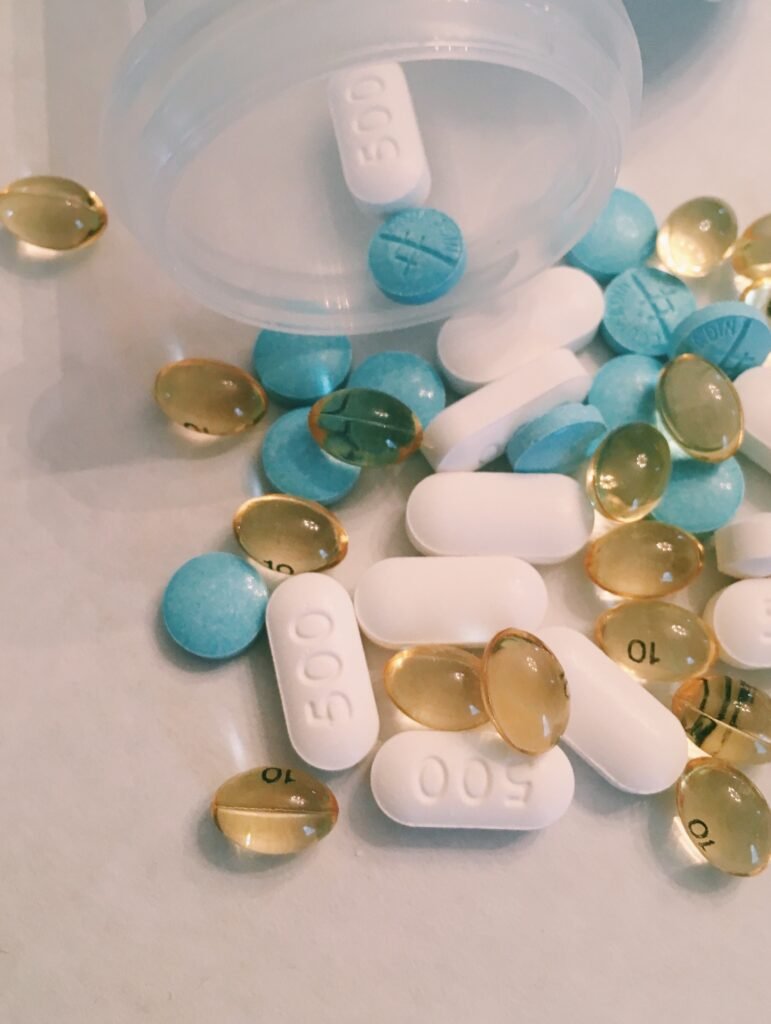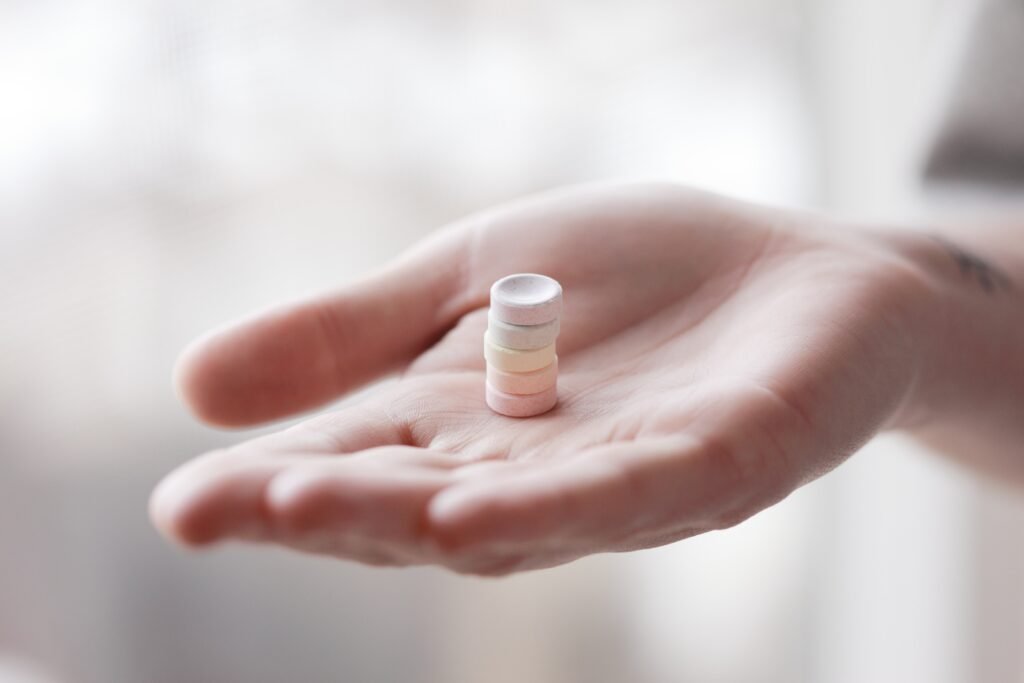Are you or someone you know struggling with substance addiction? You may be wondering if alternative medicine can offer any relief. In this article, we explore the potential benefits of alternative medicine in treating substance addiction. From acupuncture to herbal remedies, we will delve into various practices that have shown promise in assisting individuals on their path to recovery. Let’s explore the possibilities together and see if alternative medicine can provide the support you need.
Overview of Substance Addiction
Substance addiction is a serious and complex issue that affects individuals from all walks of life. It involves the persistent use of substances despite negative consequences, causing a range of physical, psychological, and social problems. Understanding the nature of substance addiction is essential in order to effectively address and treat the condition.
Understanding substance addiction
Substance addiction is a chronic brain disease that alters the structure and function of the brain, leading to compulsive drug-seeking behavior. It is characterized by a dependence on substances such as alcohol, opioids, stimulants, or illicit drugs. Addiction is often accompanied by intense cravings, tolerance, and withdrawal symptoms. This condition affects not only the individual but also their relationships, work performance, and overall well-being.
Common types of substances people are addicted to
There is a wide range of substances that individuals can become addicted to. Alcohol, opioids, such as heroin and prescription painkillers, stimulants like cocaine and methamphetamine, and cannabis are among the most commonly abused substances. Additionally, synthetic drugs like bath salts and hallucinogens, as well as prescription medications like benzodiazepines, can also lead to dependence and addiction.
Traditional Approaches to Substance Addiction Treatment
Traditional approaches to substance addiction treatment have long been the cornerstone of addiction recovery. These approaches focus on addressing addiction through various methods and therapies.

Medication-assisted therapy
Medication-assisted therapy (MAT) is an evidence-based approach that combines medications with counseling and behavioral therapies. Medications such as methadone, buprenorphine, and naltrexone are commonly used to help manage cravings, reduce withdrawal symptoms, and prevent relapse. MAT has been shown to be effective in helping individuals overcome opioid addiction and is often used in combination with other therapies.
Individual therapy
Individual therapy plays a crucial role in substance addiction treatment. It involves one-on-one sessions with a trained therapist who helps individuals explore the underlying causes of their addiction, identify triggers and develop healthy coping strategies. Therapeutic approaches such as cognitive-behavioral therapy (CBT), motivational interviewing, and psychodynamic therapy are commonly used in individual therapy to address the emotional and psychological aspects of addiction.
Group therapy
Group therapy provides individuals with a supportive and non-judgmental environment to share their experiences, challenges, and successes in addiction recovery. Led by a therapist or counselor, group therapy sessions allow participants to gain insights from others who may be facing similar struggles. Group therapy also fosters a sense of community and connection, which can be essential in overcoming addiction.
Rise of Alternative Medicine in Addiction Treatment
In recent years, there has been a growing interest in alternative medicine approaches to substance addiction treatment. Alternative medicine focuses on holistic healing and aims to address the underlying imbalances and root causes of addiction. It encompasses various non-conventional therapies and practices that complement traditional approaches to provide a comprehensive treatment approach.

Exploring non-conventional approaches
Alternative medicine explores non-conventional approaches to addiction treatment, including therapies that go beyond the use of medications and traditional therapy. These approaches often take into account the individual’s physical, emotional, and spiritual well-being, aiming to restore balance and promote overall health.
Benefits of alternative medicine in addiction recovery
Using alternative medicine in addiction recovery provides several benefits. Firstly, alternative medicine takes a holistic approach, addressing the mind, body, and spirit, which can lead to long-term healing and recovery. Secondly, alternative medicine therapies often have minimal side effects compared to pharmaceutical treatments. Finally, alternative medicine can serve as a complementary approach to traditional treatment, enhancing overall outcomes.
Alternative Medicine Therapies for Substance Addiction
There are several alternative medicine therapies that have shown promise in supporting substance addiction recovery.
Acupuncture
Acupuncture, an ancient Chinese practice, involves the insertion of thin needles into specific points on the body’s energy channels. This therapy aims to restore the flow of energy, known as Qi, and promote physical and emotional balance. Acupuncture has been found to be effective in reducing drug cravings, easing withdrawal symptoms, and promoting overall well-being in individuals recovering from addiction.

Herbal remedies
Herbal remedies have been used for centuries to address various health concerns, including substance addiction. Certain herbs, such as kudzu, passionflower, and milk thistle, have shown potential in reducing alcohol and drug cravings, supporting liver function, and aiding in the detoxification process. However, it is important to seek guidance from a qualified herbalist or healthcare practitioner when using herbal remedies for addiction recovery.
Meditation and mindfulness
Meditation and mindfulness practices are increasingly recognized for their positive impact on mental health and addiction recovery. These practices involve focusing one’s attention on the present moment, calming the mind, and cultivating awareness. Meditation and mindfulness have been shown to reduce stress, improve emotional regulation, and enhance overall well-being, making them valuable tools in supporting individuals on their journey to recovery.
Diet and Nutrition in Addiction Recovery
The role of diet in addiction recovery should not be underestimated. Nutrition plays a crucial role in restoring physical health and supporting overall well-being during the recovery process.
The role of diet in addiction recovery
Addiction often takes a toll on an individual’s physical health, depleting vital nutrients and compromising bodily functions. Proper nutrition plays a key role in restoring optimal health by providing essential nutrients, supporting the body’s natural detoxification processes, and promoting overall well-being. A healthy diet can also help reduce cravings, stabilize mood, and improve energy levels, all of which are crucial in sustaining long-term recovery.

Specific nutrients to support recovery
Certain nutrients have been found to be particularly beneficial in supporting the recovery process. These include omega-3 fatty acids, which can help reduce inflammation and support brain health, B vitamins, which are important for nervous system function and energy production, and amino acids like tyrosine and tryptophan, which are precursors to neurotransmitters involved in mood regulation. Incorporating a well-rounded diet rich in fruits, vegetables, lean proteins, and whole grains can provide these essential nutrients to support recovery.
Physical Modalities in Addiction Treatment
Physical modalities can play a significant role in supporting substance addiction treatment and recovery by addressing the physical aspects of addiction and promoting overall well-being.
Yoga and tai chi
Yoga and tai chi are ancient practices that combine physical movement, breath awareness, and meditation. These practices promote physical strength, flexibility, and balance while also calming the mind and reducing stress. Incorporating yoga or tai chi into addiction recovery can help individuals reconnect with their bodies, reduce anxiety and depression, and improve overall physical and mental well-being.
Massage therapy
Massage therapy is a hands-on approach that involves manipulating the body’s soft tissues to promote relaxation, reduce muscle tension, and relieve pain. In the context of addiction recovery, massage therapy can help individuals manage stress, improve sleep quality, and enhance the body’s natural detoxification processes. The therapeutic touch of a massage therapist can also provide a sense of comfort and nurturing, which is especially valuable during the challenging stages of recovery.

Exercise and fitness
Regular exercise and physical activity have numerous benefits for individuals in addiction recovery. Exercise helps reduce stress, improve mood, boost self-esteem, and promote overall physical health. Engaging in activities such as walking, running, swimming, or participating in sports can provide individuals with a healthy outlet for stress and anxiety, as well as a positive way to fill their time and develop new habits.
Psychological and Emotional Support
Substance addiction often stems from underlying psychological and emotional issues. Therefore, providing adequate support in these areas is essential for successful recovery.
Art and music therapy
Art and music therapy offer individuals creative outlets for self-expression and emotional healing. Engaging in these therapies can help individuals process their emotions, reduce stress, and develop healthy coping mechanisms. Whether it’s creating visual art, playing a musical instrument, or engaging in group art or music sessions, these therapies can be powerful tools for emotional healing and personal growth in addiction recovery.
Hypnotherapy
Hypnotherapy is a therapeutic technique that involves guiding individuals into a deeply relaxed state, during which the mind becomes more open to suggestion. In addiction recovery, hypnotherapy can be used to address underlying triggers and subconscious patterns related to substance use. It can help individuals develop healthier thought patterns, reduce cravings, and increase motivation and confidence in maintaining sobriety.
Energy healing techniques
Energy healing techniques, such as Reiki and acupuncture, aim to restore balance and promote healing by working with the body’s energy systems. These therapies involve the gentle placement of hands or needles on specific points to channel and balance energy. Energy healing can help individuals in addiction recovery by reducing stress, promoting relaxation, and supporting overall well-being. While the scientific evidence behind these practices is still emerging, many individuals report positive experiences and outcomes.
Holistic Approaches for Substance Addiction
Taking a holistic approach to substance addiction involves addressing not only the physical and psychological aspects but also incorporating lifestyle changes, spirituality, and creating a supportive environment.
Holistic lifestyle changes
Incorporating holistic lifestyle changes into addiction recovery can have a profound impact on overall well-being and long-term recovery. These changes may include adopting healthy eating habits, engaging in regular exercise, practicing mindfulness and self-care, and cultivating healthy relationships. Making these changes can help individuals develop a stronger sense of self, better coping mechanisms, and a healthier lifestyle.
Incorporating spirituality
For many individuals, spirituality plays a significant role in addiction recovery. It involves connecting with a higher power, embracing spiritual practices, and finding purpose and meaning in life. Incorporating spirituality into addiction recovery can provide individuals with a sense of hope, inner strength, and a belief in something greater than themselves. This can be particularly helpful during challenging times and can serve as a source of motivation and resilience.
Creating a supportive environment
Creating a supportive environment is crucial in promoting successful addiction recovery. Surrounding oneself with positive influences, such as supportive family and friends, participation in support groups, and engaging in activities that promote personal growth, can help individuals stay focused and motivated. Additionally, removing oneself from environments that may trigger substance use and seeking out supportive living arrangements or treatment facilities that prioritize a holistic approach can provide a solid foundation for recovery.
Controversy and Criticisms of Alternative Medicine
While alternative medicine approaches to substance addiction treatment have gained popularity and shown promising results, they are not without controversy and criticisms.
Lack of scientific evidence
One of the main criticisms of alternative medicine in addiction treatment is the lack of rigorous scientific evidence supporting its effectiveness. While there are studies and anecdotal evidence suggesting positive outcomes, more research is needed to establish the efficacy of specific alternative therapies in the context of substance addiction.
Safety concerns
Another concern revolves around the safety of alternative medicine therapies, as some may not be regulated or standardized. It is essential to ensure that alternative medicine practitioners are properly trained and certified and to engage in open communication with healthcare providers to ensure safety and minimize potential risks.
Integration of Alternative Medicine in Mainstream Treatment
Despite the controversies and criticisms, there is a growing recognition of the potential benefits of integrating alternative medicine into mainstream addiction treatment.
Collaboration between alternative and traditional practitioners
Collaboration between alternative medicine practitioners and traditional healthcare professionals can offer the best of both worlds. By working together, they can combine their expertise and resources to provide individuals in addiction recovery with a comprehensive and personalized treatment approach that addresses their unique needs.
Integrative addiction treatment centers
Integrative addiction treatment centers have emerged as a response to the demand for a more holistic and collaborative approach to addiction recovery. These centers incorporate both traditional and alternative therapies, providing individuals with a range of evidence-based treatments and alternative medicine modalities. This integrative approach aims to improve overall outcomes and support individuals in achieving sustained and meaningful recovery.
In conclusion, substance addiction is a complex issue that requires a comprehensive and individualized approach to treatment. While traditional approaches such as medication-assisted therapy and counseling remain fundamental, the rise of alternative medicine offers additional options for individuals in addiction recovery. Alternative medicine therapies, holistic lifestyle changes, and the integration of traditional and alternative approaches can provide individuals with a well-rounded and personalized treatment experience. As the field of addiction treatment continues to evolve, the integration of alternative medicine into mainstream practices holds promise for enhancing overall outcomes and supporting individuals on their path to recovery.


